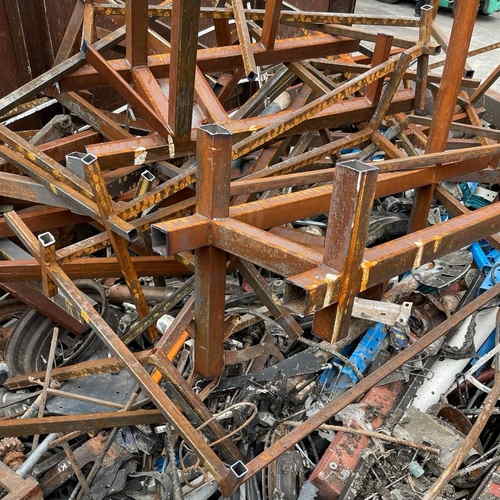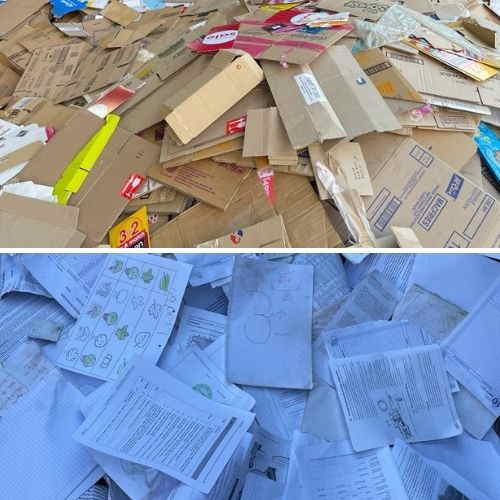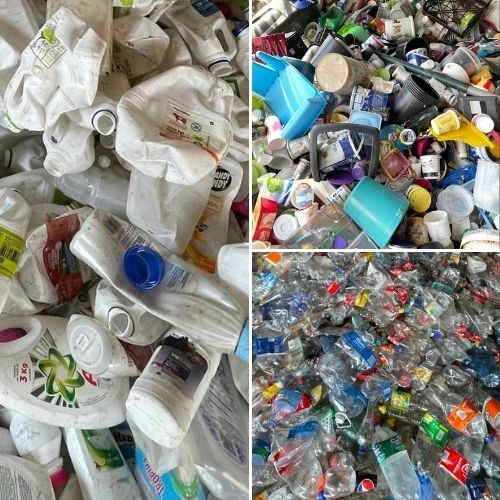About Splitrock Recycling

Splitrock recycling is committed to environmental sustainability.
We understand the significance of protecting our planet’s natural resources. With the help of our consumers, we are able to achieve our goals.
Recycling reduces the need for mining, lowers metal manufacturers’ production costs, and helps in the delivery of high-quality metal products all over the world.
This is all part of our strategic approach to intelligent resource management and re-use.
Recyclable Products
Ferrous Metals
Scrap iron, cast iron, stainless steel, and carbon steel are all common ferrous metals.
The majority of ferrous metals are alloys, which are made up of two or more metals.
Ferrous metals, for example, are utilized in architectural and industrial fabrication for ships, vehicles, bridges, trains, and skyscraper steel beams.
Examples of ferrous metals are:
- Steel: In construction and industrial metal fabrication, iron and carbon are commonly used.
- Carbon steel: Iron has been given a higher carbon content, making it a very hard metal.
- Stainless steel: The addition of chromium to an alloy steel makes it rust-resistant.
- Other alloy steels: Chromium, nickel, and titanium are light metals that can be used to reinforce other metals without adding weight.
- Cast iron: Iron, carbon, and silicon are heavy, hard metals that resist wear.
Ferrous Metals
Scrap iron, cast iron, stainless steel, and carbon steel are all common ferrous metals.
The majority of ferrous metals are alloys, which are made up of two or more metals.
Ferrous metals, for example, are utilized in architectural and industrial fabrication for ships, vehicles, bridges, trains, and skyscraper steel beams.
Examples of ferrous metals are:
- Steel: In construction and industrial metal fabrication, iron and carbon are commonly used.
- Carbon steel: Iron has been given a higher carbon content, making it a very hard metal.
- Stainless steel: The addition of chromium to an alloy steel makes it rust-resistant.
- Other alloy steels: Chromium, nickel, and titanium are light metals that can be used to reinforce other metals without adding weight.
- Cast iron: Iron, carbon, and silicon are heavy, hard metals that resist wear.
Non Ferrous Metals
Aluminium, copper, lead, zinc, and tin are non-ferrous metals, as are precious metals like gold and silver.
Their main advantage over ferrous materials is their malleability.
They are also iron-free, making them perfect for gutters, liquid pipelines, roofing, and outdoor signs.
They are non-magnetic, which is important for many electronic and wiring applications.
Examples of Non Ferrous Metals are:
- Aluminum: Lightweight, low-strength, easily shaped.
- Copper: High electrical conductivity and malleability.
- Zinc: Medium-strength metal with low melting point widely used in galvanizing to prevent rust on iron or steel.
- Lead: Heavy, soft, malleable metal; low melting point, low strength
- Tin: A soft, malleable metal with a low tensile strength that is frequently used to coat steel in order to avoid corrosion.
Paper Recycling
Paper recycling is about making a difference – in our environment, in our economy, and in the way we handle waste.
The environmental impact of manufactured materials is considerably reduced when they are recycled.
What can be recycled?
- Magazines and brochures.
- Newspapers
- Office and shredded paper, envelopes
- Cardboard boxes of any kind .
- Old telephone directories and books
- Envelopes
- Paper giftwrap
- Milk, beverage and food cartons (liquid board packaging)
- Paper cups
Paper Recycling
Paper recycling is about making a difference – in our environment, in our economy, and in the way we handle waste.
The environmental impact of manufactured materials is considerably reduced when they are recycled.
What can be recycled?
- Magazines and brochures.
- Newspapers
- Office and shredded paper, envelopes
- Cardboard boxes of any kind .
- Old telephone directories and books
- Envelopes
- Paper giftwrap
- Milk, beverage and food cartons (liquid board packaging)
- Paper cups
Recycling of Plastics
We are surrounded by plastic. We see and use plastic all the time, from cold drink bottles to grocery bags.
Plastic can pollute the environment and produce garbage.
Humans and the environment may be endangered as a result of these impacts. Furthermore, if plastic is not properly managed, creating new ones might be a waste of resources.
To avoid waste, it is therefore reasonable to reuse and reprocess plastic.
Plastic recycling is the method of gathering waste plastic and reconverting them to new and useful plastic products.
Plastic recycling guarantees that this enormous volume of plastic is not thrown away. You can instead reprocess the resources to create new products.
Types of Plastic products
- Cold drink bottles
- Mineral water bottles
- Milk bottles
- Sauce bottles
- Plastic furniture, buckets
- Clear plastic bags
- Mixed plastic bags
- Shrink wrap
- Polypropylene
- Bottle caps

Why should you be recycling?
Saves Energy
Recycling has been proved to save lots of energy.
Manufacturing products from raw materials consumes a lot of non-renewable energy.
Companies that utilize recycled aluminum save up to 95% energy during the production of aluminum products when compared to companies that source raw materials.
Making goods from recycled materials uses less water, less energy and creates less pollution.
Recycling Helps Protect The Environment
Recycling eliminates the need for raw material extraction (mine, quarrying, and logging), refining, and processing, all of which pollute the air and water.
Recycling Creates Jobs
Recycling not only reduces landfill waste and greenhouse gas emissions, but it also offers new job opportunities and boosts our economy overall.
You Can Make a Difference
Many people believe that one person cannot make a difference, however in the case of recycling, one individual can have a significant impact.
Our Gallery























Reach Us
Address
14 Susan St, Strydompark, Randburg, 2196
Visit
M-F: 08am – 4.30pm
Saturday: 08am – 1pm
Get In Touch
Location
14 Susan St, Strydompark, Randburg, 2196



